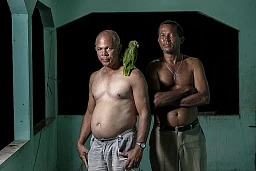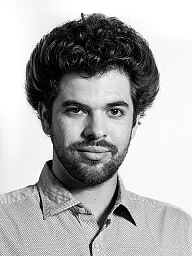Black Helvetia (Swiss Stories 2019, by Dom Smaz) - Swiss Press Award

Dom Smaz
The Krull brothers, Domingos Krull de Souza and Ednilson Krull de Souza. Their grandfather (Walter Krull) was a German descendant and their grandmother (Bela Sofia Krull) was of African descent, at a time when the Krulls were still one of the richest landowners of the colony. The first members of the Krull family (brothers Ernesto and Francisco) to arrive in the area were nephews and heir to the land of the Hamburg consul in Bahia, Peter Peycke. Mr. Peycke used his "Leopoldina" plantation and his export business to sell a large quantity of coffee in Europe under the name "Café Caravelas". Helvécia, Bahia, Brazil. December 2015.
Neue Zürcher Zeitung
Photo / Swiss Stories
2019
Dom Smaz
Helvécia, is an old colony founded by Swiss and German immigrants in northeast of Brazil, 200 years ago. It was an important coffee production with the strength of 2000 slaves, until the abolition in 1888. Some colons descendants still lives in this mixed village, where 80% of the population are of African descendants. However, evangelicals still point black culture as evil in their speech.
